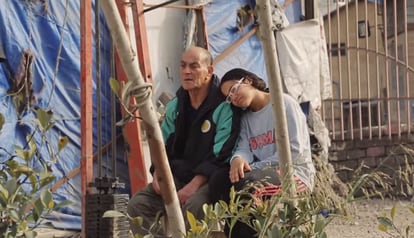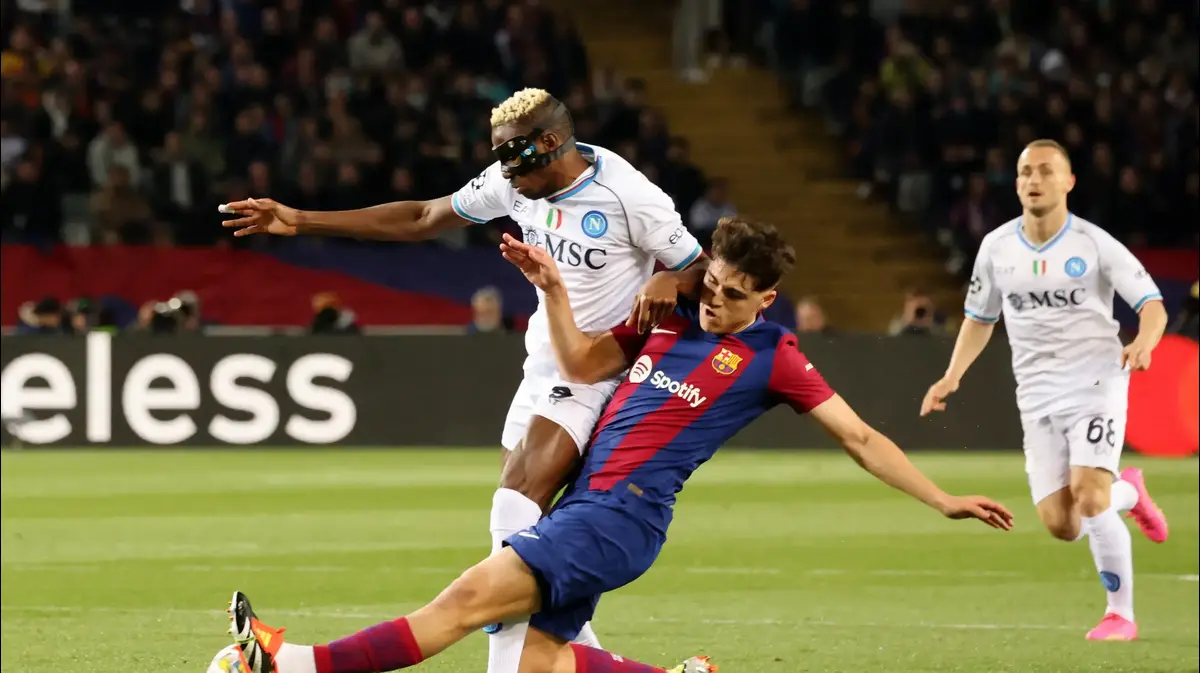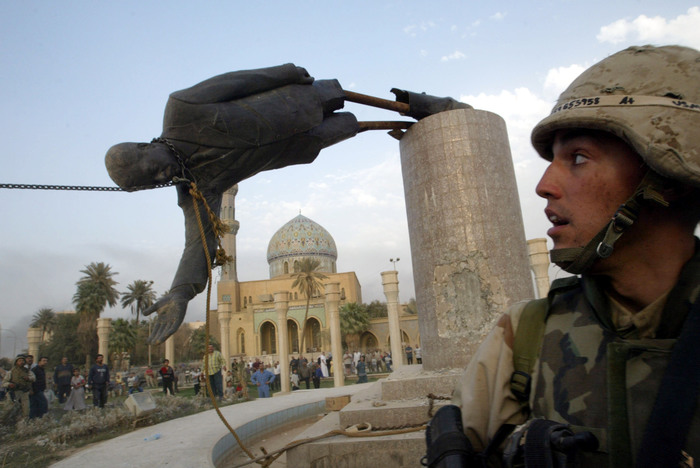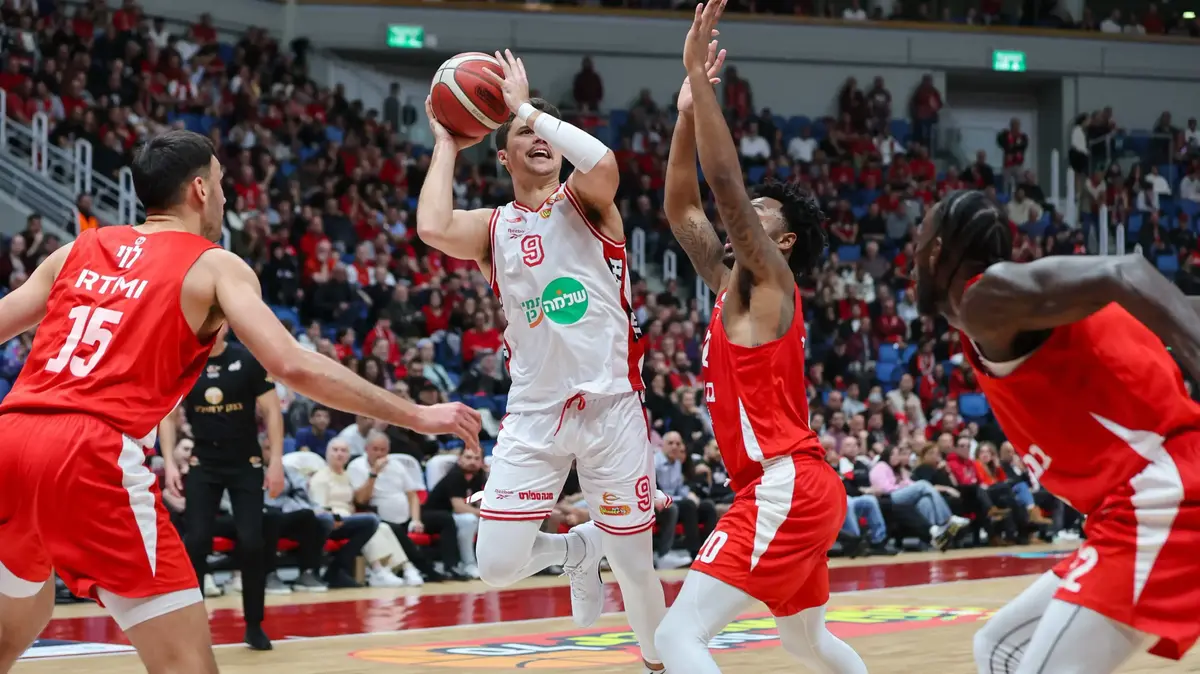On a dusty, mostly empty corner of a noisy street in the Mediterranean city of Alexandria, Egypt, sits unnoticed what was once a kind of shrine for Coach Ramadan.
It is a humble weightlifting gym, although at first glance it looks like little more than an abandoned wasteland.
Few would imagine that the country's elite weightlifters have flourished from this site.
A former Olympian himself, Ramadan trained athletes here for more than 20 years who have amassed more than 400 medals, such as his daughter Nahla, a pioneer in Egypt and world gold medalist, and Abir Abdel Rahman, the first Arab woman to win two-time Olympics. this sport.
It was the unexpected success of the first of them, Nahla, that initially attracted the attention of Mayye Zayed, then still a teenager and today an Egyptian filmmaker who has made that gym the setting for one of the most relevant documentaries of recent years. in Egypt,
Lift Like a Girl
.
In it, Zayed intimately accompanies a new aspiring athlete, the young Zebiba, who dreams of becoming the next weightlifting star thanks to Ramadan, for four years.
“In 2003 I was a teenager and I remember reading on the news that a young girl had just won gold at the world championships, and that girl was Nahla Ramadan, the daughter of Captain Ramadan.
I read that she trained in the street with her father, without resources, with nothing.
And the story fascinated me”, recalls Zayed, who more than a decade later set out to record the documentary.
“In 2014 I was introduced to Ramadan and I knew that he was continuing to train other women in the middle of the street,” he explains.
an unconventional life
The result
is an emotional observational work that dives into Zebiba's sporting life and ambitions.
Hand in hand with her, she portrays a very unconventional sport for women in Egypt, despite their success.
And it explores issues such as the special relationship between a coach and an athlete, the empowerment of a young girl through sport, the fabric of a community thanks to a popular and inclusive idea of it, and the determination of an entire group to conquer a common dream.
Premiering at the Toronto International Film Festival at the end of 2020, the documentary became the first Egyptian on Netflix, although it is not available in its Spanish catalog.
“We want to give more people the opportunity to see their lives portrayed on screen, and we are proud to amplify this Egyptian film globally, investing in new voices and Arab filmmakers who have beautiful, complex and nuanced stories to share with the world. ”, Says Nuha Eltayeb, director of content acquisitions for the Middle East, North Africa and Turkey region at Netflix.
Zebiba sitting next to her coach at one point in the documentary.
Lift Like a Girl
starts when Zebiba, whose real name is Asmaa Ramadan (who has no family relationship with her coach, although she has the same last name), is only 14 years old, and follows her for four years on a path of sacrifices, physical and mental, during which the young woman transforms from a small and introverted girl to a fierce competitor.
Zebiba was supposed to be at the Tokyo Olympics, but the Egyptian weightlifting team was suspended for a doping case beyond her control.
“I was a girl [when I started training], I was 13 years old.
My cousin, the captain Esmat Mansour, was the world champion, and she was the one who introduced me to the field of weightlifting", says Zebiba, who continues: "Now I still train in the same place because I consider it my second home, since all my life is in this place”.
The other great figure is that of Ramadan, who died in 2017, during the filming of the documentary, and whom the youngest refer to as a captain.
He is a humble guy, with a strong character and all passion: anger, shouting, insults and rejection when things don't work out;
compliments, hugs, dances and songs of joy when they do.
Somehow, Ramadan embodies the harshness of his gymnasium site, which he turns into his temple, and is opposed to Zebiba, with whom, perhaps because of this, he forges a special relationship.
“Captain Ramadan was not just a coach, but my father and my whole life.
I learned many things from him, such as how to respect the little ones before the older ones, or how to learn to deal with people with good manners”, says Zebiba.
"It was important to me because he saw something good in me, the project of a good champion who can achieve his dreams," he adds.
prejudices
One of the most striking aspects of the figure of Ramadan is his philosophy on gender issues in an ultraconservative and patriarchal country.
Beyond his commitment to training weightlifters and his harsh treatment, he can be seen telling a religious man from the neighborhood that "prioritizing boys is outdated" and that "girls have to be as strong as a man." bull".
And at the same time he calls on female athletes to “be men”.
“He was smart, progressive, charismatic and compelling.
It's not easy to convince a father or a mother from that neighborhood to let their daughters play sports," says Zayed, who notes, even so, their contradictions, and hopes that the documentary will open a dialogue on gender norms, especially in sport, and about gender biases enmeshed in language.
Along these lines, the commitment of Ramadan and the rest of the group to a popular sport, inclusive and rooted in its community, even after all the milestones achieved, also stands out.
In this sense, almost the entire documentary focuses on the modest lot where he trains, which for the group is much more than a gym: it is, in his words, a factory of champions, in which a local community very diversity come together to support and push their own.
“One day she told me that after Nahla won the world championship, they received offers from big sports clubs in Alexandria for the girls to come and train there.
But they were for upper-middle class Egyptians, elitist in a way, and Ramadan didn't want that.
If someone wanted to support the sport, he had to support the place,” says Zayed.
“And the young women who used to train there as children now train other girls and boys for free.
In a way, they are giving back to the place that formed them, and that is the model they have found.
That's why he keeps going: because it's not just one man who believes in him," he slides, "but a whole group that believes in this and in the importance it has for them, for the community, for the neighborhood, for Alexandria and for Egypt. ”.
You can follow EL PAÍS TELEVISIÓN on
or sign up here to receive
our weekly newsletter
.
50% off
Subscribe to continue reading
read without limits
Keep reading
I'm already a subscriber









